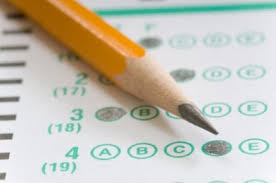Test Anxiety and the Brain
According to numerous studies, standardized tests and other academic-based tests result in a high level of test anxiety in students. This is especially true of students that are struggling in a specific subject.
As the child’s anxiety level increases, tests lead to the undermining of learning. Today, it is not at all uncommon for a child to lose sleep, experience appetite problems, and have a decrease in the effectiveness of their immune system as a result of test anxiety.
Tests orient each child to their performance, the goals of the education system, and the comparative standards as determined among other students of the same age group.
Tests focus on exceptionally high standards that are deemed “excellent” rather than the internal-based mastery and understanding of the skills and concepts of a child. In this brief guide, you will learn about test anxiety and the brain.
The Brain’s Response
When a child experiences stress, the body is – in essence – responding to a highly intense demand. This may be emotional, mental, or physical. When stress is induced as a result of test anxiety, the sympathetic part of the endocrine system and the autonomic nervous system is detrimentally impacted.
Numerous cognitive impairments may start to occur as the stress from text anxiety results in a decreased level of capacity – as it pertains to memory.
According to the research performed in this area, there are three areas within the brain that are detrimentally impacted by test anxiety. These include the following:
- The Prefrontal Cortex
- The Amygdala
- The Brain Base
Signs of Test Anxiety
There are many different signs of a child that is suffering from test anxiety. Many students will start to act out. They may cry, experience an emotional meltdown, throw temper tantrums, get extremely mad, display responses that are considered to be highly rebellious, and even seem as if they are unteachable.
As a parent, it is imperative that you learn to identify the signs that may indicate that your child is suffering from test anxiety. In addition to the previously mentioned, many students may start to skip class, may refuse to participate in the classroom, may become withdrawn, and answer questions incorrectly.
The brain becomes so completely overwhelmed with the effects of anxiety that it cannot focus on learning; instead, it places an emphasis on fighting the “danger” that it perceives.
Today’s students are consistently battling comparative test results. They are increasingly anxious and becoming exceptionally competitive as a result of the push to improve or live up to the expectations of their teachers, parents, and guidance counselors. This – in and of itself – makes it very difficult for the child to understand and master the skills that are required to be successful in school.
If your child is struggling with test-taking anxiety, appears apathetic towards academics, or is suffering from low self-esteem as a result of their lack of understanding, Miracle Math Coaching has the ability to help!







